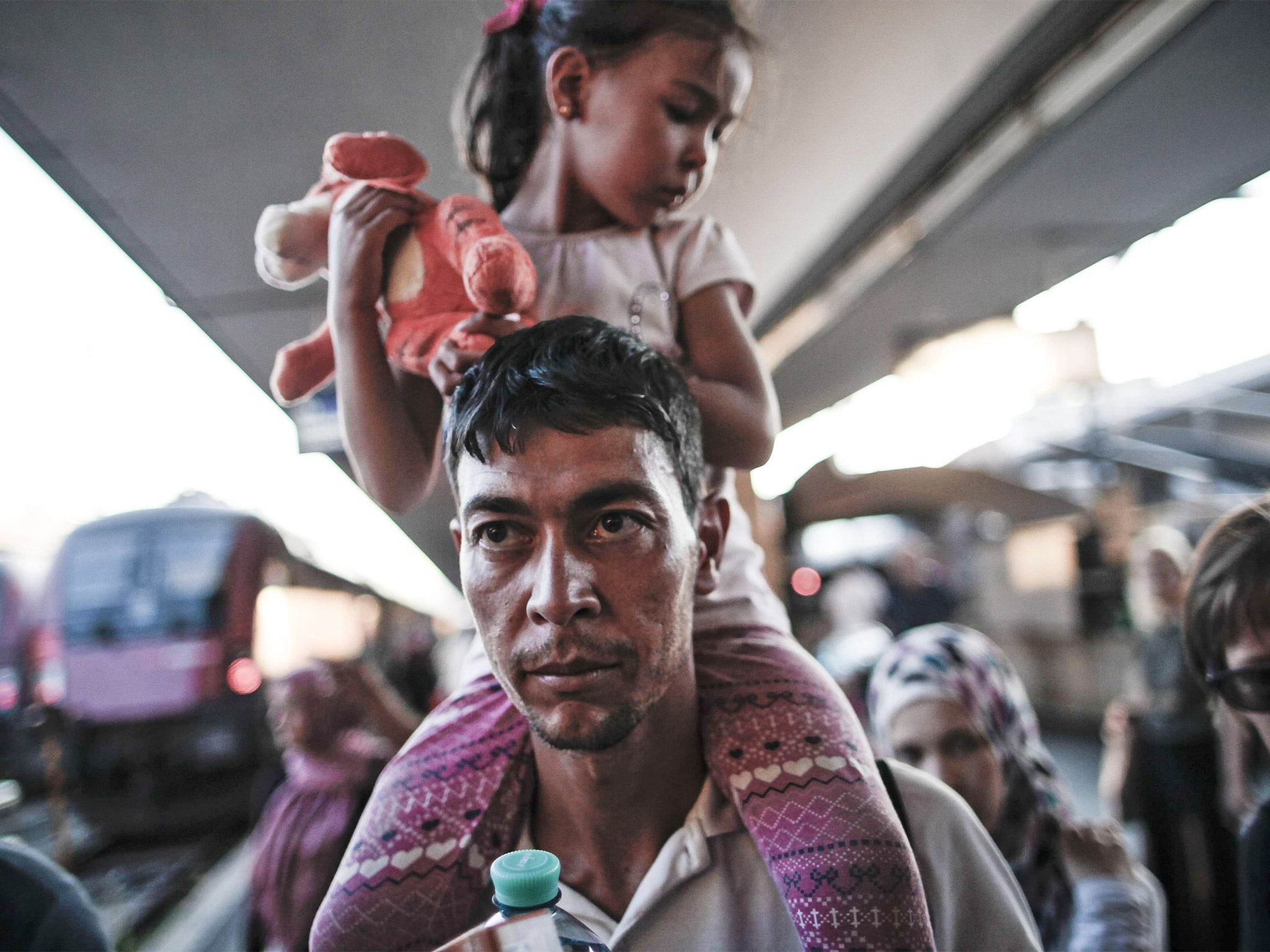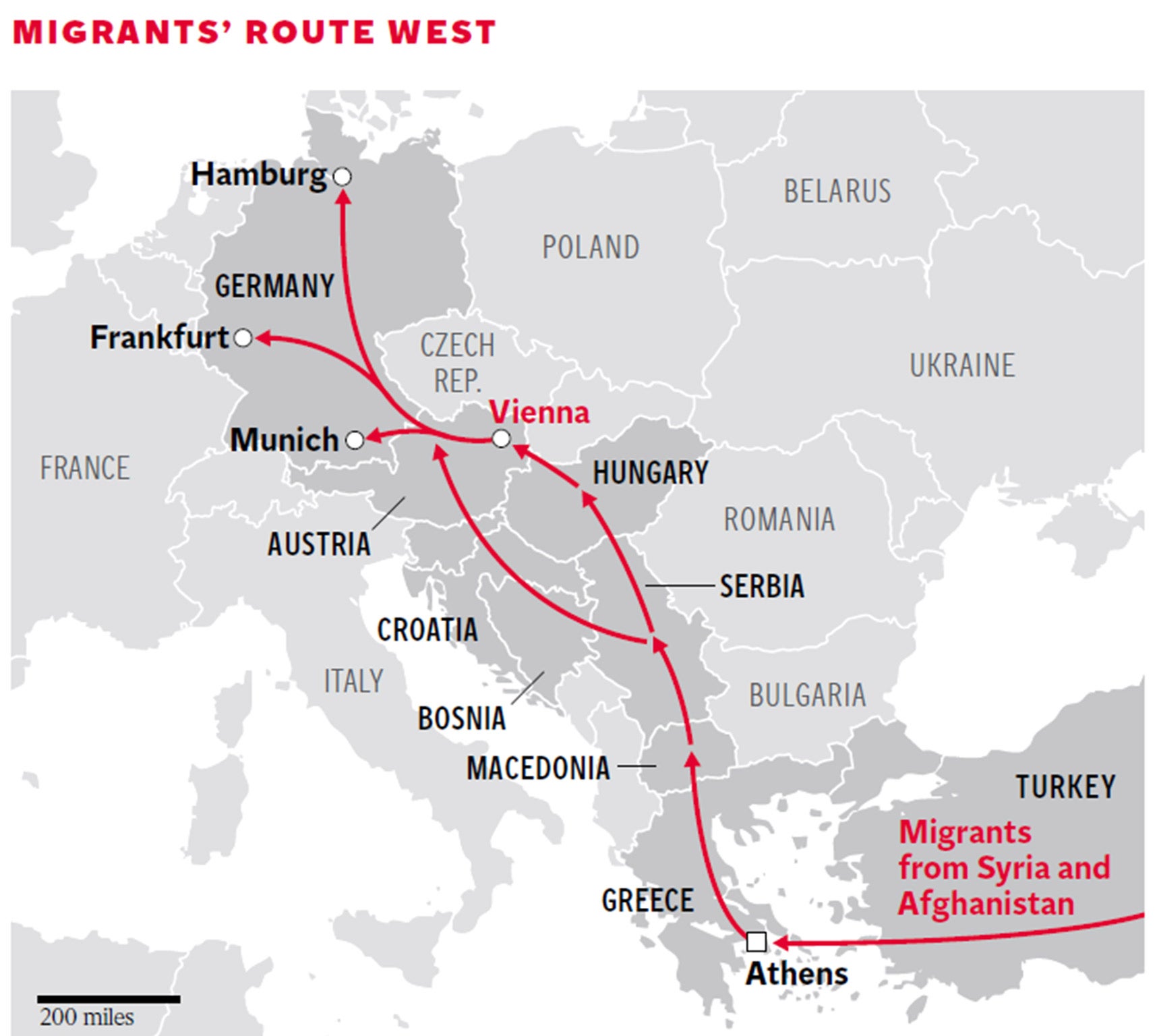Migrant crisis: Austrians show their support for refugees travelling through Vienna en route to Germany
Volunteers at Westbahnhof train station are handing out bottled water and donations from passengers as thousands pass through the city

In the sweltering heat, the three passengers outside Westbahnhof train station sit in the shade. Their journey, for the time being anyway, is over.
The terminal in Vienna is busy but the atmosphere is slightly calmer than a day before when, on Monday, some 3,650 refugees and migrants arrived on packed trains from Hungary, the biggest number ever to arrive in Austria in one day.
One man, who does not want to give his name, attempts to tell The Independent why he has arrived in Vienna. He simply says “Taliban” and, to demonstrate his meaning, holds his finger out, pretending to shoot each one of his friends. Several other groups of Afghans are sitting on the grass outside the station, some with tickets for trains to Germany later the day. Other say they do not have enough money to buy them yet.
“Most of our family are in Iran,” the man, originally from the Afghan city of Kandahar, adds. “But we did not want to be there. There are no jobs there. The police are aggressive and they arrest you. We are going to Germany.” One of his companions adds: “In Germany we will be happy.”
Another Afghan, an 18-year-old man who just got off a train from Hungary, says he has been travelling for more than 40 days. “It was a very dangerous journey. I’m heading to Germany now,” he says.
Sitting nearby eating a banana given to her by a passer by is a two-year-old girl with her parents, also from Afghanistan. Her mother, who does not speak much English, proudly tries to explain with hand actions that the girl takes after her father. When asked about their journey, they explain they came overland and said they were “very scared” for their daughter but now “feel OK in Europe”.

At Westbahnhof volunteers are managing a constant supply of trolleys full of water bottles and donations from passengers, including one elderly lady wheeling a shopping bag bursting with biscuits. “Lots of the refugees who came yesterday only left this morning so it was still very busy,” says Christina Schoerkhuber, who is helping to distribute food and water. “Some refugees looked happy, others were obviously exhausted. Some even looked like zombies.”
Most who came on Monday had, by today, already moved on to Germany. But more were arriving, albeit in much smaller numbers. In the station, logistics are being handled by staff from Austria’s national rail company ÖBB, although half a dozen relaxed-looking police are patrolling the platform, stopping to speak to people with questions or comments.
“It has been an OK atmosphere with the police,” Ms Schoerkhuber explains, adding that it was the same when she attended a 20,000-strong protest in support of refugees in Vienna the previous day. “At the protest I thought the police were also better than they have been previous times. The problem is there is a restrictive law in Austria about refugees but I hope that some change can now happen.”
Join our commenting forum
Join thought-provoking conversations, follow other Independent readers and see their replies
Comments
Bookmark popover
Removed from bookmarks